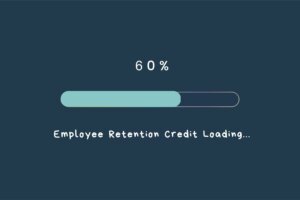An email began: A chapter of Catholic Charities is set up as a single-member corporation, that member being the diocese as represented by the bishop. The board is convinced that they are really just an advisory board and have no right, authority, or need to question the actions or expenditures of the CEO, and are utterly clueless about their regulatory or fiduciary responsibilities. They assume the diocese has all the power and all of the liability. And the diocese — and its legal counsel — has no interest in having them think/act otherwise.
I’ve worked with a number of NPOs “affiliated with” the Catholic Church, and in every instance, the corporation was set up as a single-member corporation, that member being the diocese as represented by the bishop. And, in each case, there was a Board of Trustees/Directors/Governors that, in reality, had no authority or responsibilities other than what the Diocese granted. And, often, the authority and responsibility was changed periodically.
Boards of NPOs “owned” by the church (any church) serve at the pleasure of the church.
The responsibilities of Board Members, as traditionally known, don’t apply in those circumstances.
In my experience, the more common scenario is where the Diocese (or Archdiocese) lets the “board” believe they have the “authority and responsibility.” The key is the phrase “lets the board believe.”
I recall working with an NPO that had been created by an Archdiocese to provide the community with a cultural center and a variety of cultural experiences – within “acceptable” limits.
My work was with the “Board” – to create Board-like processes/procedures and committees, suggest revisions in the by-laws, create development and marketing programs, and, in general, lift them out of the rut they’d been in for many years under the direction of a priest/Executive Director.
This Board was left alone as long as they raised money, but the entire Board had to report to the Archbishop and his council once each year, where the Archbishop’s counselors recommended that he approve or disapprove what the NPO’s board was doing/planning, especially any changes in by-laws.
The frustration of the process was that, no matter how much progress I might make with the Board, it was all subject to review/revision/approval/ disapproval by the hierarchy.
Of course, I understood the relationship going in, and did feel much was accomplished, but church-owned NPOs will never be like those we experience in the secular world.
Not a comment, just an observation.
The email continued: How would YOU advise a lone board member in this or a similar situation? How do they buck a “get along” board, a despotic CEO, and the perceived power of a major institution (the diocese, in this case) to expose and correct the misuse of charitable funds?
To your other questions, I would observe that CEOs of these NPOs are (usually) appointed/hired by the hierarchy (read, diocese), and that, in the context of the situation, are more the voice of the hierarchy than is the Board. The Board (literally) has no choice but to “go along.”
Dioceses (usually) have very good business managers and legal counsel, they do their own audits of the NPOs that they own, and it would be very surprising if they didn’t know of the CEOs activities/actions. Along with the business-like operation, there is an atmosphere of “don’t rock the boat.”
Any Board Member (or other individual) could bring their concern directly to the diocesan legal staff, or the (Arch-)Bishop’s clerical staff. But that’s no guarantee of any result or consequence.
Taking the matter outside the “church” can get real messy.
Recommendation to the concerned Board Member: Think very carefully about how committed you are to making a change, and how your efforts to effect that change will impact your life.
Not saying you should or shouldn’t…. just think hard, first.
=-=-=-=-=-=-=-=-=-=-=-=-=-=
Have you heard about
The Fundraising Series of ebooks?
They’re easy to read, to the point, and inexpensive ($1.99-$4.99)
This posting is a sample of what’s in the series.
=-=-=-=-=-=-=-=-=-=-=-=-=-=
Have a comment or a question about starting, evaluating
or expanding your fundraising program?
AskHank
=-=-=-=-=-=-=-=-=-=-=-=-=-=
We’ve been posting these pieces for the last five years,
and we welcome your questions/problems.
They are likely to engender further discussion.
Look forward to hearing from you.
Comments & Questions
=-=-=-=-=-=-=-=-=-=-=-=-=-=
If you’re reading this on-line, and would like to comment/expand on the above piece, or would just like to offer your thoughts on the subject of this posting, we encourage you to “Leave a Reply.” If you’re reading this as an email, and you want to comment on the above piece, email Comments to offer your thoughts. Your comments, with appropriate attribution, could be the basis of a new posting.
 Sections of this topic
Sections of this topic
















